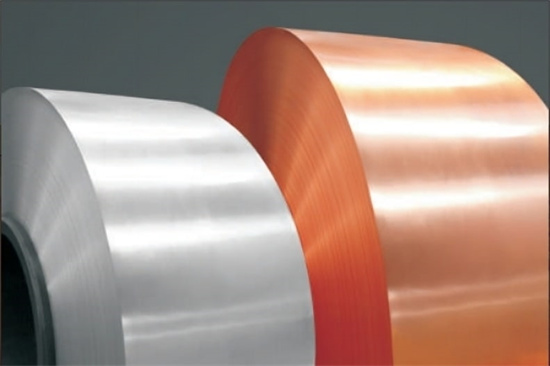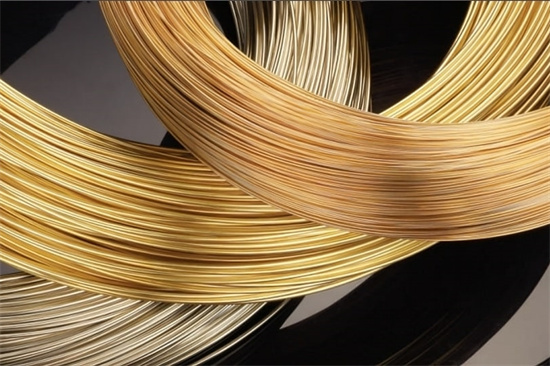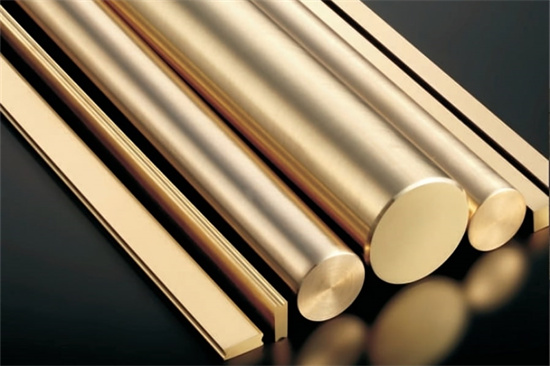


CuZn36Pb2As: The Go-To Brass Alloy for Machinability and Strength
Low MOQ
Provide low minimum order quantity to meet different needs.
OEM & ODM
Provide customized products and design services to meet unique customer needs.
Adequate Stock
Ensure fast order processing and provide reliable and efficient service.
Customer Satisfaction
Provide high quality products with customer satisfaction at the core.
share this article
Table of Contents
When it comes to precision engineering, manufacturing, and corrosion-resistant materials, CuZn36Pb2As stands out as a remarkable brass alloy. This alloy, a complex blend of copper (Cu), zinc (Zn), lead (Pb), and arsenic (As), is specifically designed to provide excellent machinability, durability, and corrosion resistance. Whether you’re in the marine industry, automotive manufacturing, or working on high-performance plumbing systems, CuZn36Pb2As offers a versatile solution.
In this comprehensive guide, we’ll dive deep into CuZn36Pb2As, exploring its composition, properties, applications, and advantages. If you’re looking for an SEO-optimized, in-depth analysis with a conversational tone that keeps you engaged, you’re in the right place. Let’s get started!
Overview
CuZn36Pb2As is a brass alloy that’s designed for superior machinability and corrosion resistance. The addition of arsenic (As) plays a critical role in enhancing the alloy’s resistance to dezincification, a process where zinc is selectively leached from brass in corrosive environments, leaving behind a weak copper structure.
This brass alloy is commonly used in marine applications, plumbing systems, and electrical components where high precision and long-lasting durability are essential. The lead (Pb) content ensures ease of machining, while the arsenic boosts the alloy’s ability to withstand corrosive conditions like saltwater exposure.
Key Features :
- High machinability: Thanks to the lead content, CuZn36Pb2As can be easily shaped into complex parts.
- Dezincification resistant: Arsenic helps prevent the loss of zinc in corrosive environments, ensuring longer-lasting components.
- Good corrosion resistance: Effective in both freshwater and seawater environments.
- Moderate strength: Offers a balance between toughness and flexibility, making it suitable for a variety of applications.
- Cost-effective: Compared to other high-performance alloys, CuZn36Pb2As provides excellent value for money.
Composition and Properties
To truly understand the benefits of this alloy, it’s essential to break down its composition and mechanical properties. The specific elements in CuZn36Pb2As contribute to its unique characteristics, making it a versatile choice for various industries.
Chemical Composition
| Element | Percentage (%) |
|---|---|
| Copper (Cu) | 62 – 64 |
| Zinc (Zn) | 34 – 36 |
| Lead (Pb) | 1.5 – 2.5 |
| Arsenic (As) | 0.02 – 0.15 |
| Iron (Fe) | ≤ 0.05 |
| Other Elements | Trace amounts |
Mechanical and Physical Properties
| Property | Value |
|---|---|
| Tensile Strength | 300 – 430 MPa |
| Yield Strength | 120 – 200 MPa |
| Elongation | 20 – 35% |
| Density | 8.4 g/cm³ |
| Hardness (HB) | 80 – 110 HB |
| Thermal Conductivity | 120 W/m·K |
| Electrical Conductivity | 23% IACS |
| Melting Point | 890 – 920°C |
Notable Properties:
- Dezincification Resistance: Arsenic is the star of the show here. In environments like seawater, where dezincification is a risk, arsenic acts as a protective barrier, keeping your components strong and intact.
- Excellent Machinability: The lead content ensures that CuZn36Pb2As can be machined into complex parts with precision, making it a go-to for industries requiring fine details and intricate designs.
- Corrosion Resistance: CuZn36Pb2As performs exceptionally well in marine and industrial environments, where exposure to saltwater and chemicals can cause rapid deterioration in other materials.
- Moderate Strength and Ductility: While other alloys may offer greater strength, CuZn36Pb2As provides a good balance between strength and flexibility, ensuring that parts can withstand stress without becoming too brittle.
Applications
CuZn36Pb2As is used in a wide range of industries due to its corrosion resistance, machinability, and dezincification resistance. Let’s explore where this alloy truly excels.
Common Applications
| Industry | Typical Applications |
|---|---|
| Marine | Ship parts, propeller shafts, seawater valves |
| Plumbing | Fittings, faucets, valve bodies, connectors |
| Electrical | Terminals, connectors, switch components |
| Automotive | Fuel components, valve components, gears |
| Aerospace | Hydraulic systems, sensor housings, fasteners |
| Machinery | Bushings, couplings, precision gears |
Why CuZn36Pb2As is a Top Choice for These Applications
- Marine: In saltwater environments, metal components are prone to dezincification. CuZn36Pb2As stands out because of its arsenic content, which prevents this issue, making it ideal for ship parts, propeller shafts, and seawater valves.
- Plumbing: The alloy’s corrosion resistance in freshwater and slightly acidic environments makes it a perfect candidate for faucets, valve bodies, and connectors in plumbing systems.
- Electrical: With decent electrical conductivity and machinability, CuZn36Pb2As is frequently used in switch components, electrical terminals, and connectors, allowing for intricate designs while maintaining electrical performance.
- Automotive: CuZn36Pb2As’s machinability and resistance to dezincification make it a great material for fuel components, valve components, and gears, which need to withstand high-pressure environments while maintaining precision.
- Aerospace: In the aerospace industry, where precision and durability are non-negotiable, CuZn36Pb2As offers a reliable solution for hydraulic systems, sensor housings, and fasteners.
- Machinery: CuZn36Pb2As’s machinability and moderate strength make it a reliable material for bushings, couplings, and precision gears, which require both durability and precision.
Specifications, Sizes, and Standards
CuZn36Pb2As is available in various sizes, grades, and forms to meet the diverse needs of different industries. Below is a look at the specifications and standards that this alloy adheres to.
Common Standards and Specifications
| Specification | Description |
|---|---|
| ASTM B16 | Standard for free-cutting brass rod, bar, and shapes |
| EN 12164 | European standard for copper and copper alloys |
| DIN 17660 | German standard for wrought copper alloys |
| JIS H3250 | Japanese standard for brass rods |
Available Sizes and Forms
| Form | Size Range |
|---|---|
| Rods | Diameter: 5 mm to 150 mm |
| Sheets/Plates | Thickness: 0.5 mm to 50 mm |
| Tubes | Diameter: 6 mm to 100 mm |
| Wires | Diameter: 0.5 mm to 10 mm |
Most suppliers offer custom-cut sizes to meet specific project requirements, ensuring flexibility and reducing waste.
Suppliers and Pricing
Pricing for CuZn36Pb2As can vary depending on several factors, including the form of the material, quantity, supplier location, and market conditions. Below is a breakdown of typical pricing and some well-known suppliers.
Suppliers and Pricing
| Supplier | Location | Price Range (per kg) | Lead Time |
|---|---|---|---|
| ThyssenKrupp Materials | Germany | $10 – $25 | 1-3 weeks |
| Aviva Metals | USA | $12 – $28 | 2-4 weeks |
| Shanghai Metal Corp | China | $8 – $20 | 3-5 weeks |
| Smiths Metal Centres | UK | £9 – £22 | 1-2 weeks |
Factors Affecting CuZn36Pb2As Pricing
- Material Form: Whether you purchase CuZn36Pb2As as rods, sheets, or tubes will affect the price. Sheets and custom-cut products tend to be more expensive due to processing costs.
- Supplier Location: Shipping costs and import/export duties can significantly impact the final price, especially if ordering internationally.
- Market Conditions: Prices for copper, zinc, and lead fluctuate based on global supply and demand, which can affect the overall cost of CuZn36Pb2As.
Advantages and Limitations
Like any material, CuZn36Pb2As has its strengths and weaknesses. Understanding these advantages and limitations is key to determining whether it’s the right material for your project.
Advantages and Limitations
| Advantages | Limitations |
|---|---|
| Excellent machinability: Lead content allows for easy cutting and shaping. | Not suitable for extreme corrosive environments: While arsenic helps, CuZn36Pb2As may not perform well in highly aggressive environments. |
| Dezincification resistance: Arsenic prevents zinc leaching, increasing durability. | Lead content: The presence of lead limits its use in drinking water distribution systems due to potential health concerns. |
| Good corrosion resistance: Performs well in freshwater and seawater environments. | Moderate strength: CuZn36Pb2As may not be ideal for high-stress applications requiring stronger alloys. |
| Affordable: Cost-effective compared to many other high-performance alloys. | Lower electrical conductivity: While decent, its electrical conductivity is lower than pure copper or high-conductivity alloys. |
| Versatile applications: Suitable for industries ranging from marine to automotive. | Environmental concerns: The lead content can raise issues for recycling and disposal. |
Comparing CuZn36Pb2As with Other Brass Alloys
When selecting the best material for your project, it’s important to compare CuZn36Pb2As with other brass alloys to see how it measures up in terms of performance, properties, and cost.
CuZn36Pb2As Compared to Other Brass Alloys
| Property | CuZn36Pb2As | CuZn35Pb2 | CuZn39Pb2 | CuZn37 (CW508L) |
|---|---|---|---|---|
| Tensile Strength | 300 – 430 MPa | 300 – 450 MPa | 320 – 450 MPa | 330 – 450 MPa |
| Machinability | Excellent | Excellent | Excellent | Good |
| Dezincification Resistance | Excellent | Moderate | Good | Low |
| Corrosion Resistance | Good | Good | Good | Moderate |
| Electrical Conductivity | 23% IACS | 24% IACS | 25% IACS | 27% IACS |
| Formability | Good | Excellent | Good | Very Good |
Key Comparisons
- CuZn36Pb2As vs. CuZn35Pb2: Both alloys offer excellent machinability, but CuZn36Pb2As stands out with its superior dezincification resistance due to the presence of arsenic. This makes it a better choice for marine applications where saltwater exposure is a concern.
- CuZn36Pb2As vs. CuZn39Pb2: While CuZn39Pb2 offers slightly higher tensile strength, CuZn36Pb2As is the better option for environments prone to dezincification.
- CuZn36Pb2As vs. CuZn37 (CW508L): CuZn37 provides better formability and electrical conductivity, making it ideal for applications like electronics. However, it excels in corrosive environments where dezincification resistance is critical.
Frequently Asked Questions (FAQ)
To help you better understand CuZn36Pb2As, here are some of the most frequently asked questions about this alloy, along with detailed answers.
| Question | Answer |
|---|---|
| What is it used for? | It is commonly used in marine, plumbing, automotive, and electrical applications due to its corrosion resistance and machinability. |
| What does arsenic do in CuZn36Pb2As? | Arsenic improves the alloy’s resistance to dezincification, ensuring that components maintain their strength in corrosive environments. |
| Is it easy to machine? | Yes, the lead content in CuZn36Pb2As makes it highly machinable, allowing for easy cutting, drilling, and shaping. |
| Does it resist dezincification? | Yes, the arsenic content in CuZn36Pb2As helps prevent dezincification, which is common in marine and other corrosive environments. |
| What is the tensile strength of CuZn36Pb2As? | It has a tensile strength ranging from 300 to 430 MPa, depending on the form and processing method. |
| Can it be used in drinking water systems? | Due to its lead content, it is generally not recommended for applications where it will come into contact with drinking water. |
Conclusion
It is a versatile and highly machinable brass alloy that offers a unique combination of corrosion resistance, dezincification resistance, and moderate strength. The addition of arsenic makes it a top contender for marine and plumbing applications, where exposure to saltwater or other corrosive environments can weaken other materials.
While it may not be the best option for extreme corrosive conditions or drinking water systems due to its lead content, it excels in applications where machinability, precision, and durability are top priorities. Industries such as automotive, marine, and electrical manufacturing rely on CuZn36Pb2As to deliver parts that can withstand both mechanical stress and corrosion.
By understanding the composition, properties, and applications of CuZn36Pb2As, you can confidently choose this alloy for your next project, knowing that it will provide the performance, reliability, and value you need.
Maybe you want to know more about our products, please contact us
Get Latest Price
About Met3DP
Product Category
HOT SALE
CONTACT US
Any questions? Send us message now! We’ll serve your request with a whole team after receiving your message.

Metal Powders for 3D Printing and Additive Manufacturing
COMPANY
PRODUCT
cONTACT INFO
- Qingdao City, Shandong, China
- [email protected]
- [email protected]
- +86 19116340731








